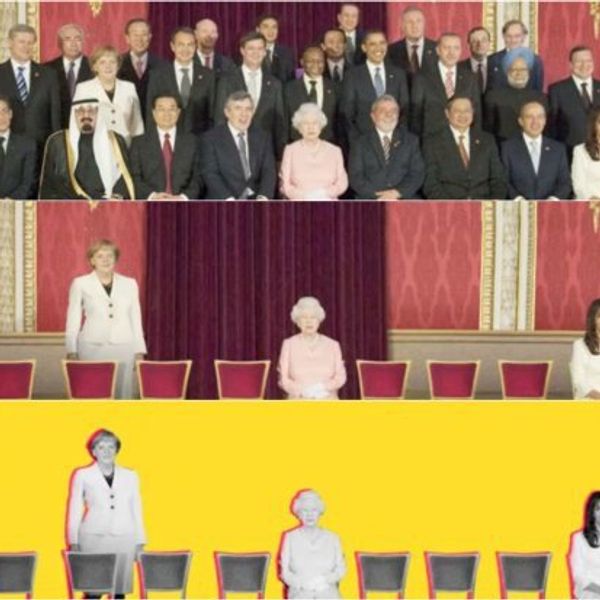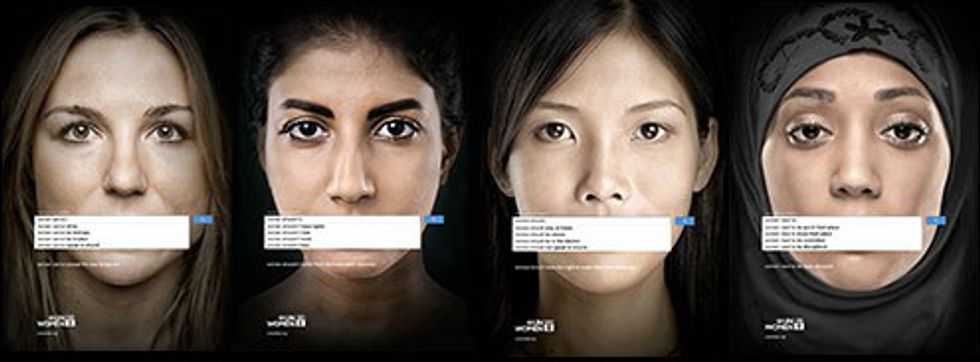Whenever you are in need to search something or to get quick results, you go to your favorite search engine. Well, Google is one of the world's biggest search engines with features such as Google Maps and Google Scholar. But there are some downsides to it. Have you ever taken a look at the autocomplete searches that pop up in the search box when you type in common terms? Well, if you haven't paid attention, you may want to start looking at what is there. Why? People search outlandish things, those things turn into ideas, and the ideas turn into how society reacts and practices ideas. Take a look at the image below:
These four images were part of an ad series created by the UN. In 2013 these creative ads were developed by Memac Ogilvy and Mather Dubai, whose goal was to display the prevalence of sexism and discrimination against women. Based on an actual Google search, the ads were a way to show how society and systems silence women and try to keep them constricted to gender roles. Some of the searches included phrases such as "women need to be put in their place," "women should be in the kitchen," "women shouldn't have rights," and "women cannot be bishops." Kareem Shuhibar stated in the article for UN Women:
"[T]he ads are shocking because they show just how far we still have to go to achieve gender equality. They are a wake up call, and we hope that the message will travel far."
The message has indeed traveled far. There are many campaigns that go to the development of gender equality for girls and women. UN Women launched the HeForShe Campaign, which is a solidarity campaign that is geared toward equality for girls and women. First lady Michelle Obama launched her campaign #62MillionGirls as a part of the Let Girls Learn Initiative, which is geared toward girls' rights for education. The Always brand launched its #LikeAGirl campaign, which strikes down the gendered roles that are put in place for girls and young women.
Today there is a continuing struggle for gender equality. Some people still think that these ideas need to be applied in society and that women and girls need to follow gender constructs. This attitude has affected many girls and women around the world, with the goal to try to silence their voices, diminish their leadership skills, and keep them in the box that society deems fit. These ads do not define women in any way, but they are a large part of a necessary conversation around sexism and discrimination against women and girls.
I thank UN Women for shedding light on this issue. For more information, read the article and check out the video below. To get involved, join a campaign like HeForShe, take a pledge to strike down #LikeAGirl, or create your own campaign to strike down gender inequality. The change has to start with us. Gender inequality is more than a women's issue; it is a world issue and we must share this issue with the world so effective change can occur.






















